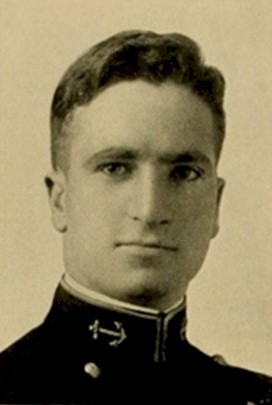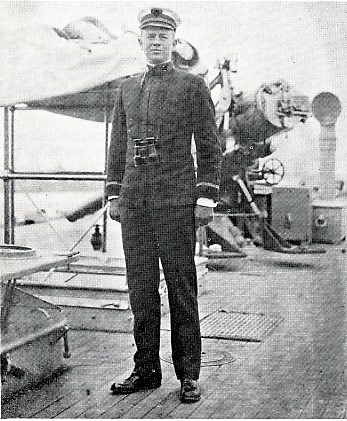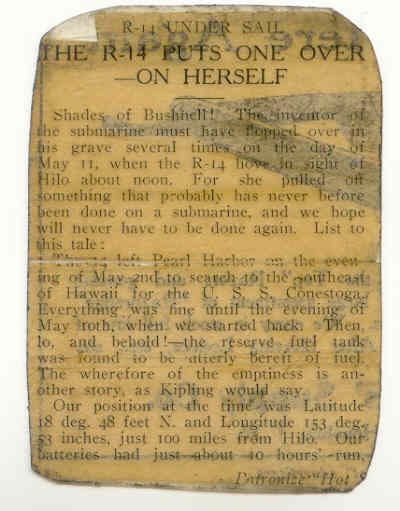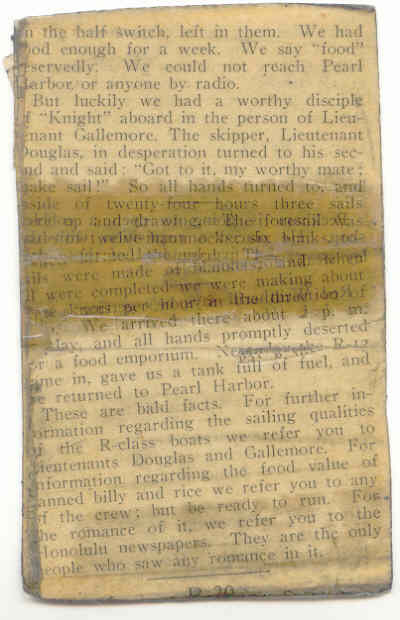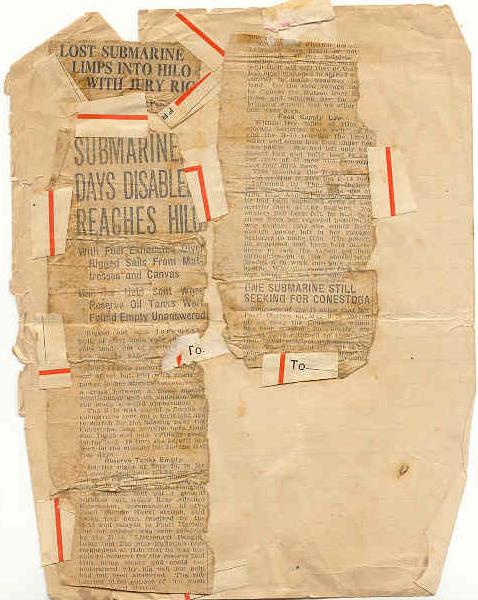R-14: Difference between revisions
No edit summary |
Pbcjohnston (talk | contribs) |
||
| Line 193: | Line 193: | ||
</div> | </div> | ||
[[File:R-14 sail rig.jpg|left| | [[File:R-14 sail rig.jpg|left|550px]] | ||
<div style="text-align: justify;"><span style="color:#00008B">This is an exclusive illustration for PigBoats.COM by artist and historian Jim Christley, showing the sail rig as devised by the R-14's crew on May 12-13, 1921. It was made out of blankets and canvas hammocks sewn together with leather laces and marline, then lashed to yardarms made out of metal pipe bunk frames. The yardarms were hoisted to two makeshift masts made out of the torpedo loading crane, with the mainsail hoisted to the radio mast. All in all it provided about two knots of speed and this got them back to safety in Hilo. It was a masterstroke of ingenuity and innovative thinking. | <div style="text-align: justify;"><span style="color:#00008B">This is an exclusive illustration for PigBoats.COM by artist and historian Jim Christley, showing the sail rig as devised by the R-14's crew on May 12-13, 1921. It was made out of blankets and canvas hammocks sewn together with leather laces and marline, then lashed to yardarms made out of metal pipe bunk frames. The yardarms were hoisted to two makeshift masts made out of the torpedo loading crane, with the mainsail hoisted to the radio mast. All in all it provided about two knots of speed and this got them back to safety in Hilo. It was a masterstroke of ingenuity and innovative thinking. | ||
| Line 201: | Line 201: | ||
[[File:R-14 undersail.jpg|left|500px]] | [[File:R-14 undersail.jpg|left|500px]] | ||
<div style="text-align: justify;"><span style="color:#00008B">This is the only known photo of the R-14 with her sails raised. The actual photographer is unknown, but it is suspected to be the Chief Engineer and Executive Officer | <div style="text-align: justify;"><span style="color:#00008B">This is the only known photo of the R-14 with her sails raised. The actual photographer is unknown, but it is suspected to be the Chief Engineer and Executive Officer LT Roy Gallemore. The mainsail can be seen lashed to the raised radio mast, and the mizzen sail can be seen behind the fairwater with part of the makeshift yardarm visible. The foremast and sail were out of view behind the photographer. | ||
Apparently, once they returned to port several prints of the photo were made and handed out to crewmen that wanted one. One of the prints made it to the National Archives, but this particular print came from the family of Ray Suess, and Ric Hedman has it in his personal collection. (see below). Ray Suess is seen leaning against the rail on the right, munching an apple. The acting CO, LT Douglas, is seen on the bridge on the far left, not wearing a hat. The rest of the crew shown are not identified. | |||
<small>Photo courtesy of Robert Suess and the Suess Family, now in the private collection of Ric Hedman.</small> | <small>Photo courtesy of Robert Suess and the Suess Family, now in the private collection of Ric Hedman.</small> | ||
| Line 215: | Line 217: | ||
[[File:R-14 undersail alexander douglas.jpg|left|500px]] | [[File:R-14 undersail alexander douglas.jpg|left|500px]] | ||
<div style="text-align: justify;"><span style="color:#00008B"> | <div style="text-align: justify;"><span style="color:#00008B">LT Alexander Dean Douglas, known simply as "Dean" to his friends, was the acting commanding officer of the R-14 in May, 1921. Despite making a few mistakes leading up to running out of fuel, Douglas and Gallemore provided outstanding leadership and guidance to the crew and got them back home safely. | ||
<small>Photo courtesy of Robert Suess and the Suess Family, now in the private collection of Ric Hedman.</small> | <small>Photo courtesy of Robert Suess and the Suess Family, now in the private collection of Ric Hedman.</small> | ||
| Line 250: | Line 252: | ||
[[File:R-14 aft deck crew.jpg|left|500px]] | [[File:R-14 aft deck crew.jpg|left|500px]] | ||
<div style="text-align: justify;"><span style="color:#00008B">Photo taken most likely during the R-14's return trip to Pearl Harbor from Hilo. This view is from the bridge, looking aft down the starboard side. In the foreground are several unidentified crewmen, although the Suess family wrote in a callout for Raymond Suess. Chief Electrician's Mate Joseph H. Hearne, of Seattle, Wash., is standing on the aft deck near the engine room hatch. Hearne developed | <div style="text-align: justify;"><span style="color:#00008B">Photo taken most likely during the R-14's return trip to Pearl Harbor from Hilo. This view is from the bridge, looking aft down the starboard side. In the foreground are several unidentified crewmen, although the Suess family wrote in a callout for Raymond Suess. Chief Electrician's Mate Joseph H. Hearne, of Seattle, Wash., is standing on the aft deck near the engine room hatch. Hearne developed the brilliant idea of charging the batteries while the props windmilled in the water with the boat under sail. That allowed the battery to remain at a full charge so that it could be used once they arrived at Hilo Harbor. | ||
<small>Photo courtesy of Robert Suess and the Suess Family, now in the private collection of Ric Hedman.</small> | <small>Photo courtesy of Robert Suess and the Suess Family, now in the private collection of Ric Hedman.</small> | ||
Revision as of 20:38, 23 January 2024
Notes
General Photos
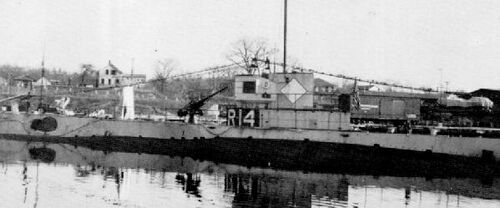
Photo in the private collection of Ric Hedman
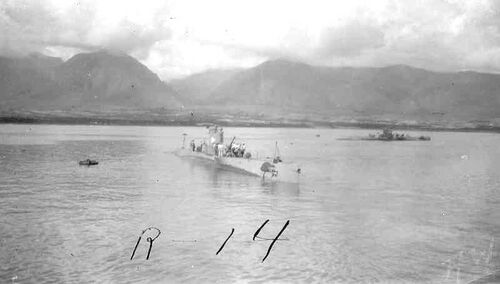
Photo courtesy of Robert Suess and the Suess Family, now in the private collection of Ric Hedman.
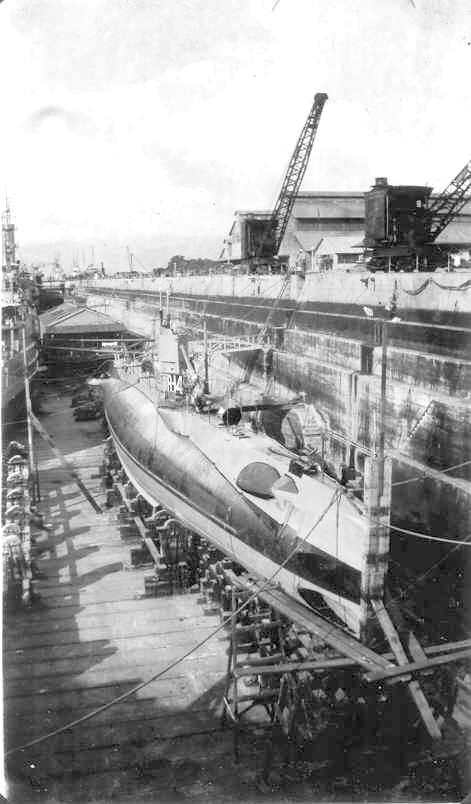
Photo courtesy of Robert Suess and the Suess Family, now in the private collection of Ric Hedman.
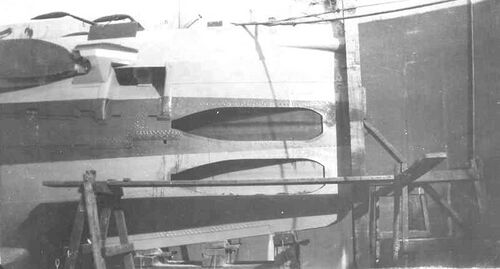
Photo courtesy of Robert Suess and the Suess Family, now in the private collection of Ric Hedman.
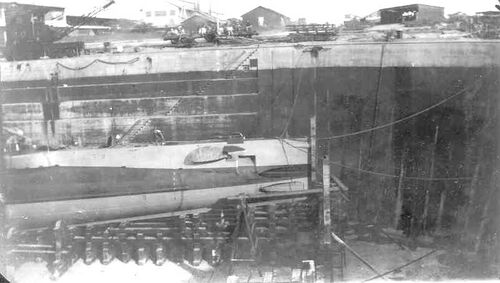
Photo courtesy of Robert Suess and the Suess Family, now in the private collection of Ric Hedman.
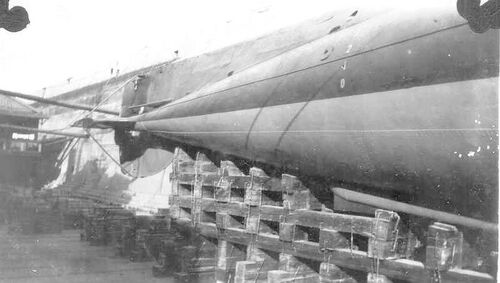
Photo courtesy of Robert Suess and the Suess Family, now in the private collection of Ric Hedman.
Photo courtesy of Robert Suess and the Suess Family, now in the private collection of Ric Hedman.
Crew Photos, 1921
-
Photo courtesy of usna1917.com
-
Photo courtesy of Katie Gallemore Eliot
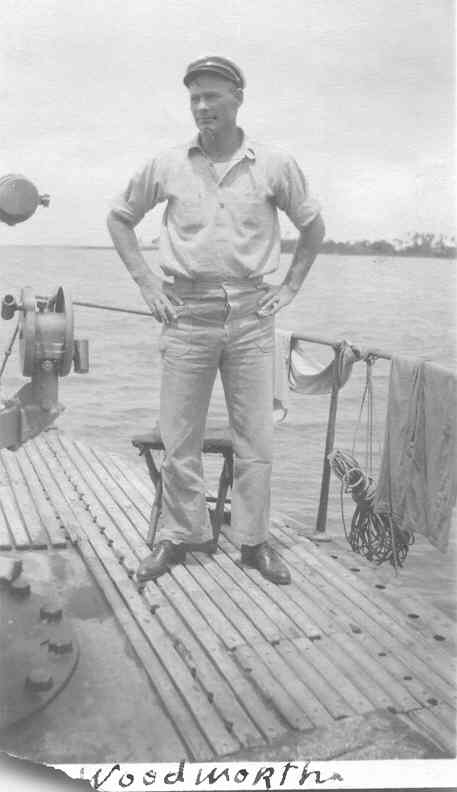
Photo courtesy of Robert Suess and the Suess Family, now in the private collection of Ric Hedman.
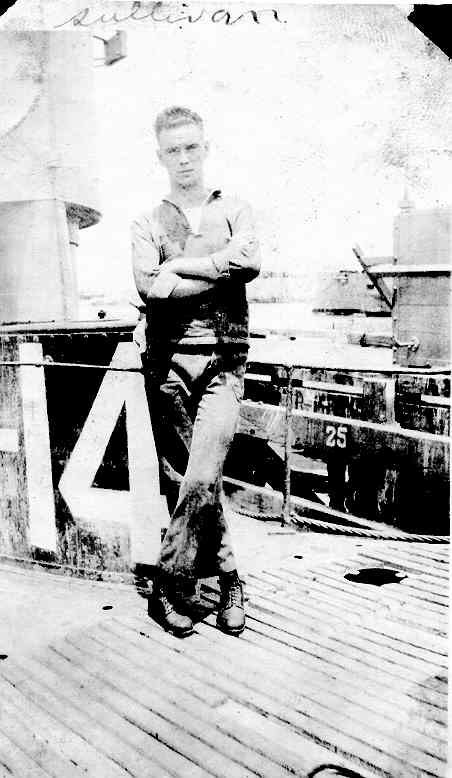
Photo courtesy of Robert Suess and the Suess Family, now in the private collection of Ric Hedman.
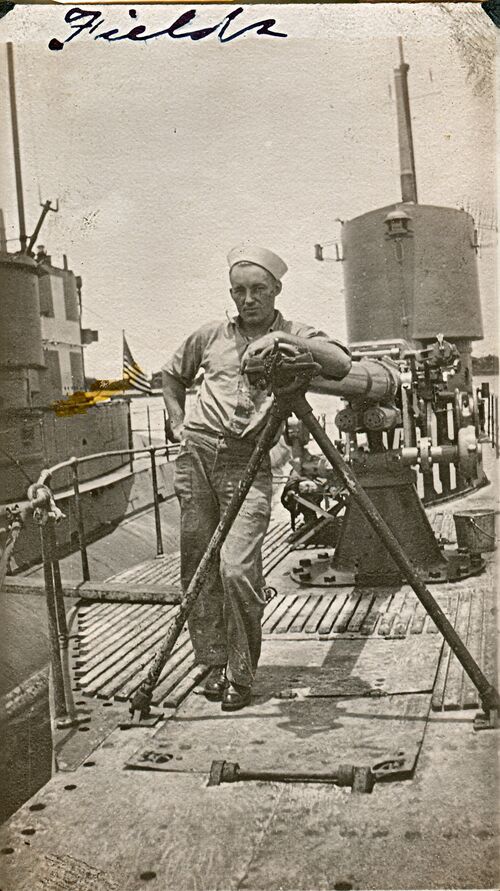
Photo courtesy of Robert Suess and the Suess Family, now in the private collection of Ric Hedman.
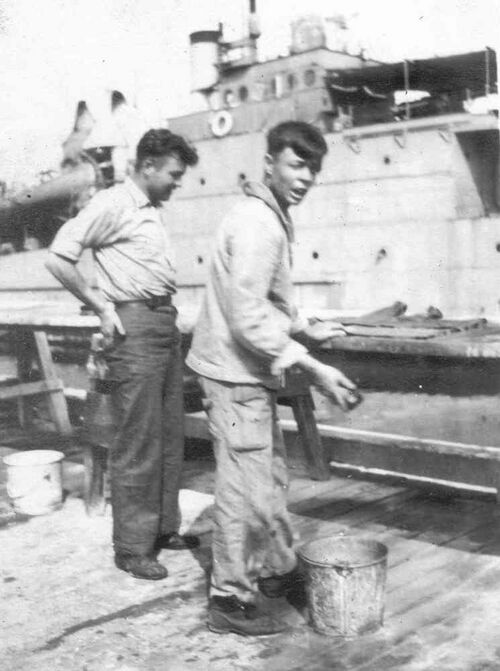
Dorsey was from Washington D.C. and Bridges came from Dallas, Texas.
Photo courtesy of Robert Suess and the Suess Family, now in the private collection of Ric Hedman.
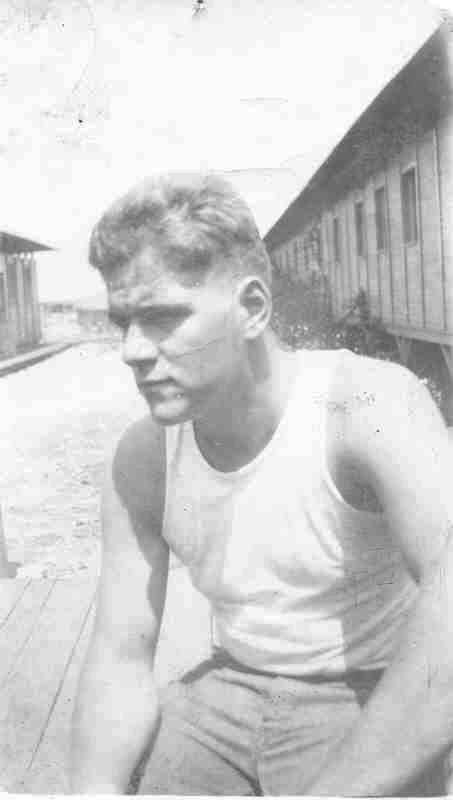
Note: The photo appears to show a rather nasty looking scar on Suess's left cheek. We do not know if this was real, or if this is an artificial effect of a 100 year old photo.
Photo courtesy of Robert Suess and the Suess Family, now in the private collection of Ric Hedman.
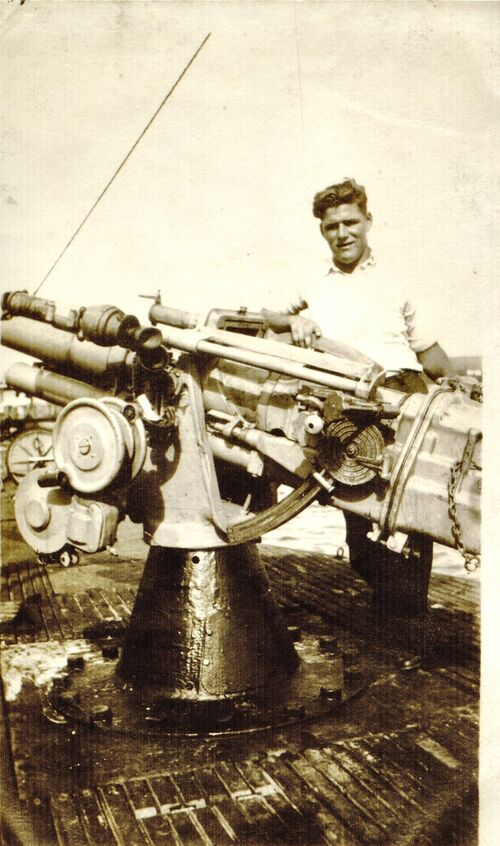
Photo courtesy of Robert Suess and the Suess Family, now in the private collection of Ric Hedman.
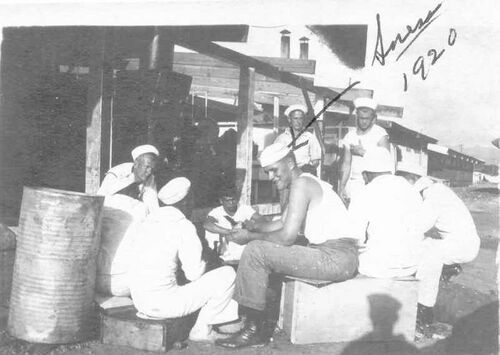
Photo courtesy of Robert Suess and the Suess Family, now in the private collection of Ric Hedman.
Interior Photos
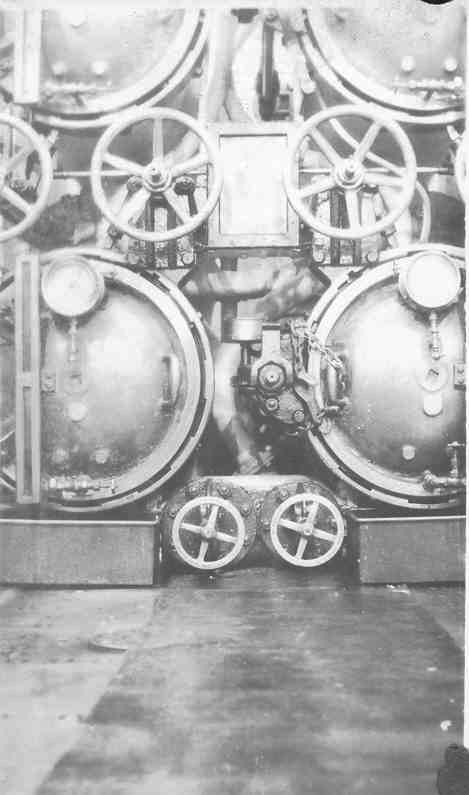
Photo courtesy of Robert Suess and the Suess Family, now in the private collection of Ric Hedman.
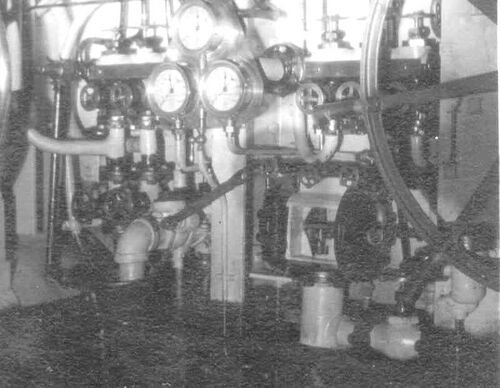
Photo courtesy of Robert Suess and the Suess Family, now in the private collection of Ric Hedman.
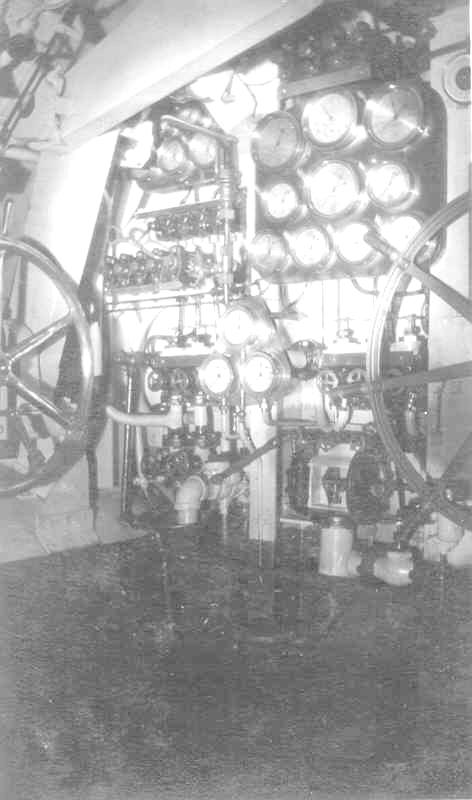
Photo courtesy of Robert Suess and the Suess Family, now in the private collection of Ric Hedman.
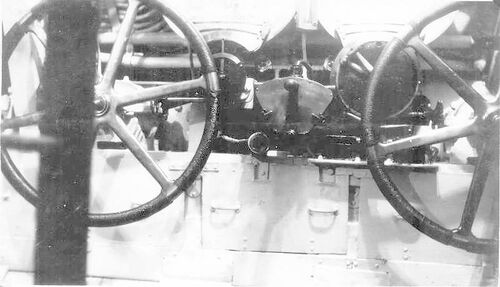
Photo courtesy of Robert Suess and the Suess Family, now in the private collection of Ric Hedman.
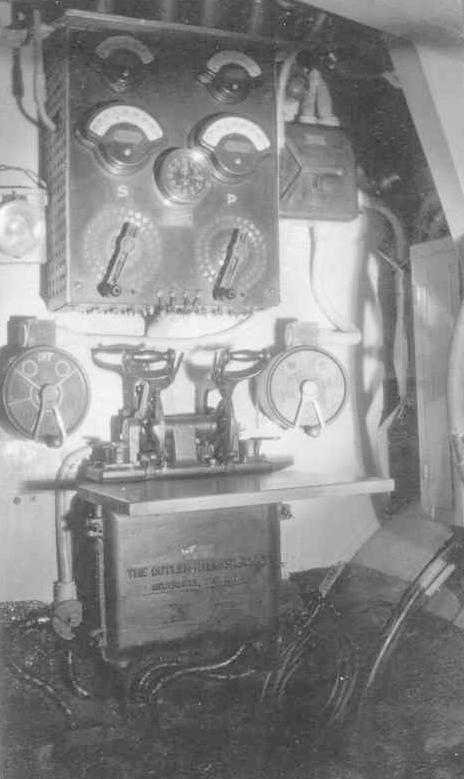
Photo courtesy of Robert Suess and the Suess Family, now in the private collection of Ric Hedman.
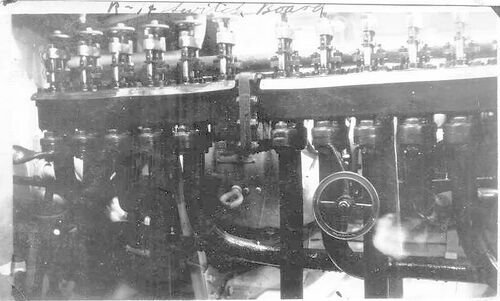
Photo courtesy of Robert Suess and the Suess Family, now in the private collection of Ric Hedman.
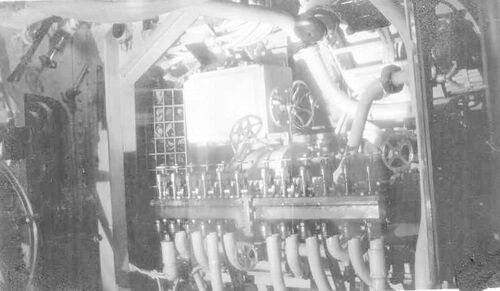
Photo courtesy of Robert Suess and the Suess Family, now in the private collection of Ric Hedman.
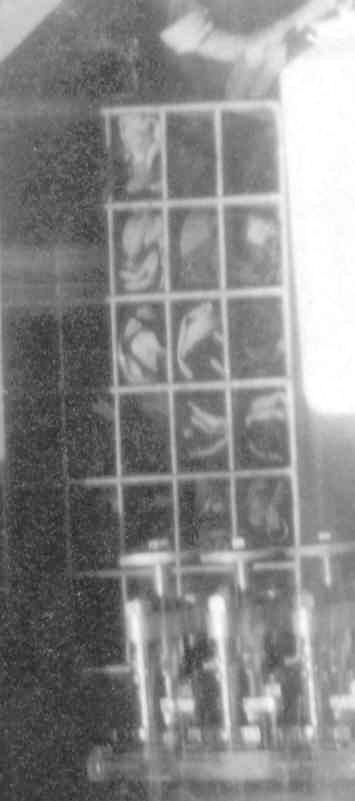
Photo courtesy of Robert Suess and the Suess Family, now in the private collection of Ric Hedman.
The Sailing Incident
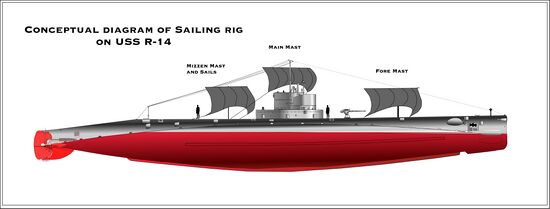
Illustration by Jim Christley. MAY NOT be used without permission.
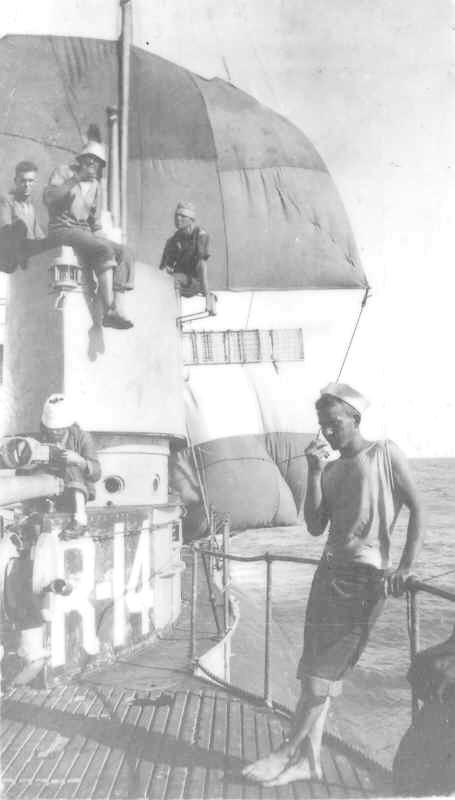
Apparently, once they returned to port several prints of the photo were made and handed out to crewmen that wanted one. One of the prints made it to the National Archives, but this particular print came from the family of Ray Suess, and Ric Hedman has it in his personal collection. (see below). Ray Suess is seen leaning against the rail on the right, munching an apple. The acting CO, LT Douglas, is seen on the bridge on the far left, not wearing a hat. The rest of the crew shown are not identified.
Photo courtesy of Robert Suess and the Suess Family, now in the private collection of Ric Hedman.
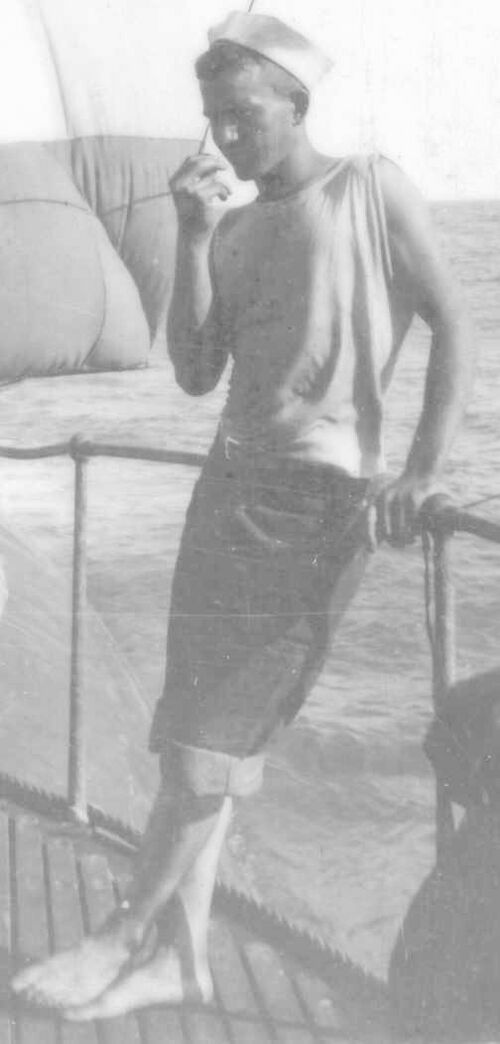
Photo courtesy of Robert Suess and the Suess Family, now in the private collection of Ric Hedman.
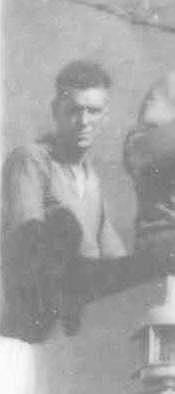
Photo courtesy of Robert Suess and the Suess Family, now in the private collection of Ric Hedman.
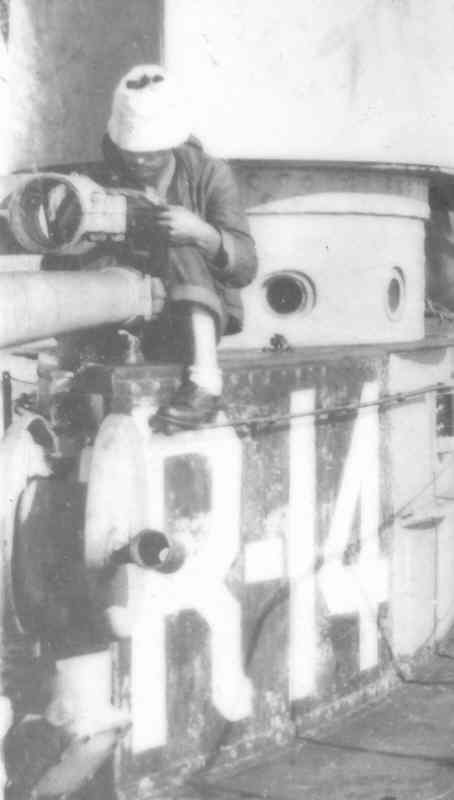
Photo courtesy of Robert Suess and the Suess Family, now in the private collection of Ric Hedman.
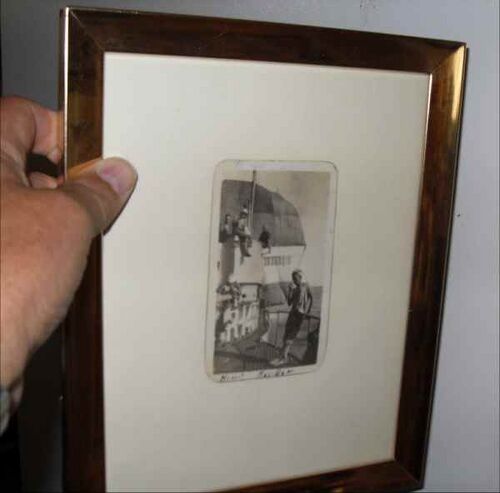
A Ric Hedman photo.
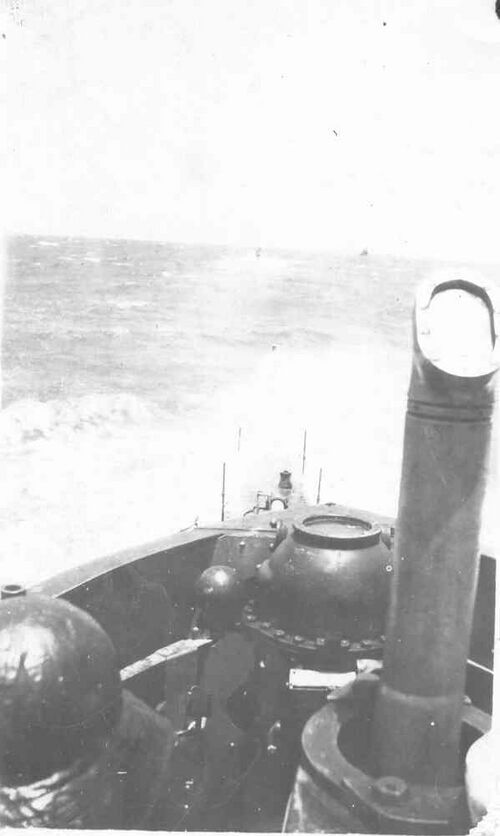
Photo courtesy of Robert Suess and the Suess Family, now in the private collection of Ric Hedman.
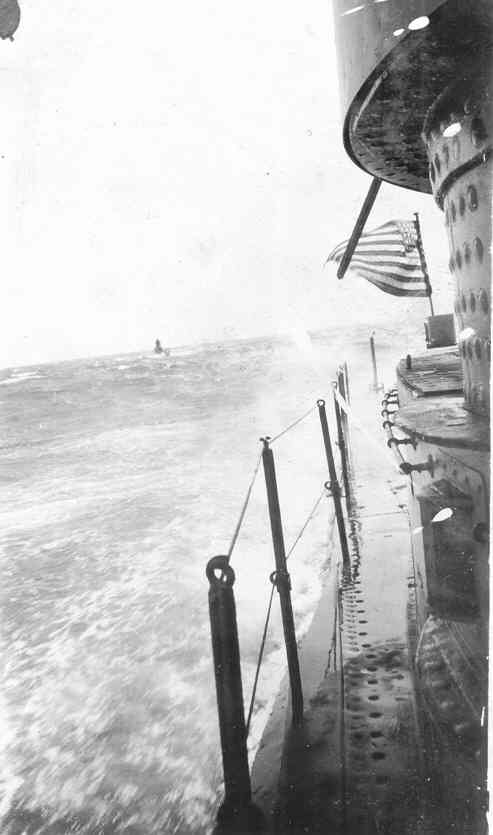
Photo courtesy of Robert Suess and the Suess Family, now in the private collection of Ric Hedman.
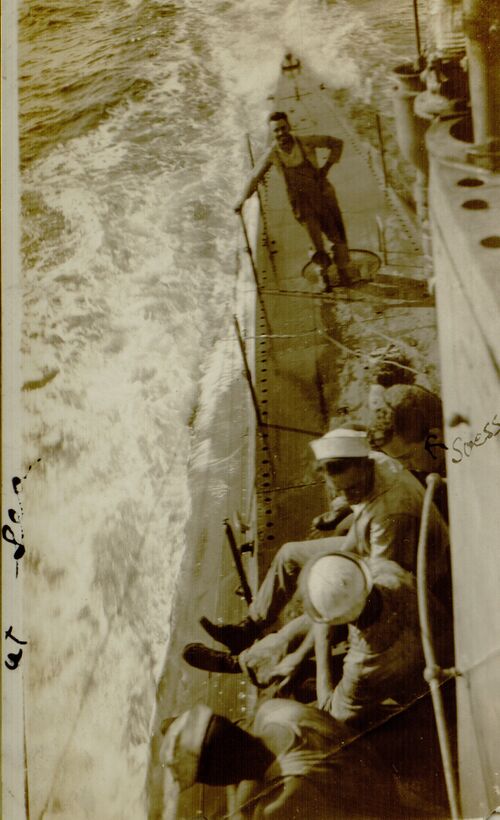
Photo courtesy of Robert Suess and the Suess Family, now in the private collection of Ric Hedman.
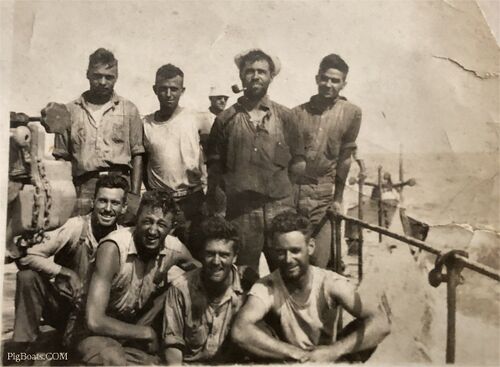
Photo courtesy of Katie Gallemore Eliot.
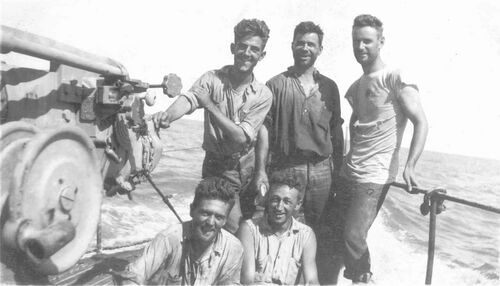
Photo courtesy of Katie Gallemore Eliot.
Photos in the private collection of Ric Hedman.
Page created by:
Ric Hedman & David Johnston
1999 - 2023 - PigBoats.COM©
Mountlake Terrace, WA, Norfolk, VA
webmaster at pigboats dot com

